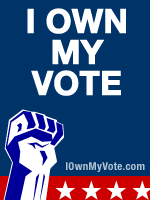Find the original article in Yes! Magazine, posted here!
Pecos Singer, a student at Santa Fe Waldorf High School in New Mexico, read and responded to the YES! Magazine article, "Who Will Rule?" by Michael Marx and Marjorie Kelly.
Prompt: The article Who Will Rule? by Michael Marx and Marjorie Kelly in YES! Magazine, opens with these lines: “Corporate power lies behind nearly every major problem we face–from stagnant wages to unaffordable health care to over consumption and global warming.” What are corporations, why are they so bad, and why are they so powerful? Read the original article "Who Will Rule?" Illustration by Don Baker for YES! Magazine. www.evidenceofhumanity.org
Read the original article "Who Will Rule?" Illustration by Don Baker for YES! Magazine. www.evidenceofhumanity.org
A corporation is simply a group of shareholders, organized into a conglomerate that can be held liable separate from its owners. This maneuver helps CEOs and major shareholders avoid being held accountable for their business-related activities. The word “corporation” comes from the Latin corporare, meaning “to embody” (“corporation”).
The corporation is a machine, with a computer at its head. The script that the computer reads is called the charter, which dictates how the company will run. Nearly every corporation in the world today is a for-profit corporation that operates with only one objective: to generate high dividends for its shareholders. Here lie two major problems. The first is that most major shareholders are high up in the company. With their large portion of shares, they profit doubly as corporate executives and as incorporated investors. The second problem is that these people are also “incorporated” in politics. Not only do they use their tremendous monetary strength to influence the legislative and elective processes, they also end up holding offices in these very institutions. This, in turn, gives rise to a third problem. These powerful people who control many facets of government have their eyes focused on only the nearest future and the highest returns. The critical issue of “short-termism” causes blindness and greed to infiltrate important corporate and government decisions.
Michael Marx and Marjorie Kelly suggest in their article “Who Will Rule?” that “we need to restore democracy and … control corporate power.” “This means elevating the rights of local municipalities over corporations.” In a sense, this just means allowing power to rest with the people, not with the money, which is perhaps the primary issue with corporations in the world today. Because of the media, itself a massive for-profit industry, many high-ranking public officials gain office through sheer brute spending. And through corporate lobbying in D.C., laws are put into place that support the agendas of the biggest spending companies. As if this weren’t enough, people in the top corporations transition smoothly into powerful political offices and back again. This “revolving door” between corporations and politics, facilitated by a steady flow of cash, is the backbone of corruption in the modern West.
Corporations are like firearms. People don’t shoot people; guns shoot people. If there were no guns, no one would be shot. The government is the casing, and the money is the ammunition. These machines fire a million times a day, and no Kevlar vest can protect us. The only protection comes from severely restricting “the realms in which for-profit corporations operate.” “The solution is to develop strong institutions that have ownership rights over common wealth.” Imagine a corporation charter that viewed all profits as “for-benefit.” And shareholders who expected dividends “for the greater good,” investing in “well-being” and “happiness,” rather than gambling on monetary profits and losses.
Marx and Kelly recommend that we use the power of community to overcome corporations. “We can stop thinking that the solution is more Democrats in power, and realize it is more democracy.” By working together, we can achieve feats of immense magnitude:
“We can knit ourselves into a single movement by adopting common frames and by integrating strategic common priorities into existing campaigns. For example, campaigns covering any issues from the environment to living wages could demand that targeted companies end all involvement in political campaigns.”
By striking boldly and accurately, the people of the world can reclaim the realm of politics and the economy.
I disagree with the first line of the article, blaming the corporations for the world’s problems. The problems arose before the corporations, who are merely a new face on the scene of humanity. The stage was set long before paper money and credit ratings, and before banks and machine guns. There is a chance for these new entities to be harnessed and used for good as well.
When you write, for example, that “By working together, we can achieve feats of immense magnitude,” I find my heart feel a hopefulness. - Majorie Kelly's response to this essay
The origins of the corporation lie next to the human desire to join together in order to fulfill something impossible for each part to accomplish individually. Yet this act of social community threatens to extinguish all that is human. The modern-day corporation shares ties not only with nature, where bees live in hive-communities to amass life-giving honey, but also with most organized religions, where people of similar beliefs congregate to achieve something holy or sacred. All three seek to unite many parts in order to benefit the whole. There is one fatal difference, however. The corporation itself takes on a persona, not as a human-like “God” character of the Middle Ages, who is either wrathful or merciful, but as a monster of accumulation and insatiable hunger. Because the conventional goal of the corporation is to make profits for its shareholders, the creators of a corporation incarnate a portion of their own innate, human greed into an entity of self-restraint.
The answer will not come through politics, nor will it come solely through economical means. This next revolution will be no different from those that came before it. It will be a philosophical revolution, but it can only be achieved when human beings resolve their relationship with technology, intellectualism, and machines, whose tremendous power for destruction could spell out doom for all life. At the heart of the philosophical revolution will be the determination and courage to spell out: “That is wrong and this is right for the good of all.”
Practically speaking, however, it will be the grassroots initiatives that will pull us into a glorious twenty-first century. This laurel will rest with cooperative movements and ecologically sustainable communities. But the crown gem of this revolution could be the powerful bankers, the CEOs, and the senators who hear the call and also rally for the greater good. These people are in an excellent place to greatly affect our future; all they need is a bit of persuasion.
Yes, this may sound utopian, but I agree with Marx and Kelly when they say, “with a citizens movement, we could turn these musings into reality in 20 years.” In the words of John Lennon, “You may say that I’m a dreamer, but I’m not the only one.”
Pecos SingerDaniel "Pecos" Singer is a graduate of the Santa Fe Waldorf High Schooland is matriculating at the University of Oregon, School of Music and Robert D. Clark Honors College, in the Fall 2010. Pecos plans to turn his passion into a career by majoring in music.
Interested?
* Want an opportunity for your students to step up their writing and write for a real audience? Learn about how to join the YES! Magazine Exemplary Essay Project here.
Friday, July 9, 2010
When the Greater Good for All Prevails
Posted by
la fin du siècle
at
11:48 AM
![]()
Labels: Daniel Pecos Singer, Yes Magazine Exemplary Essay Project
Subscribe to:
Post Comments (Atom)





























No comments:
Post a Comment